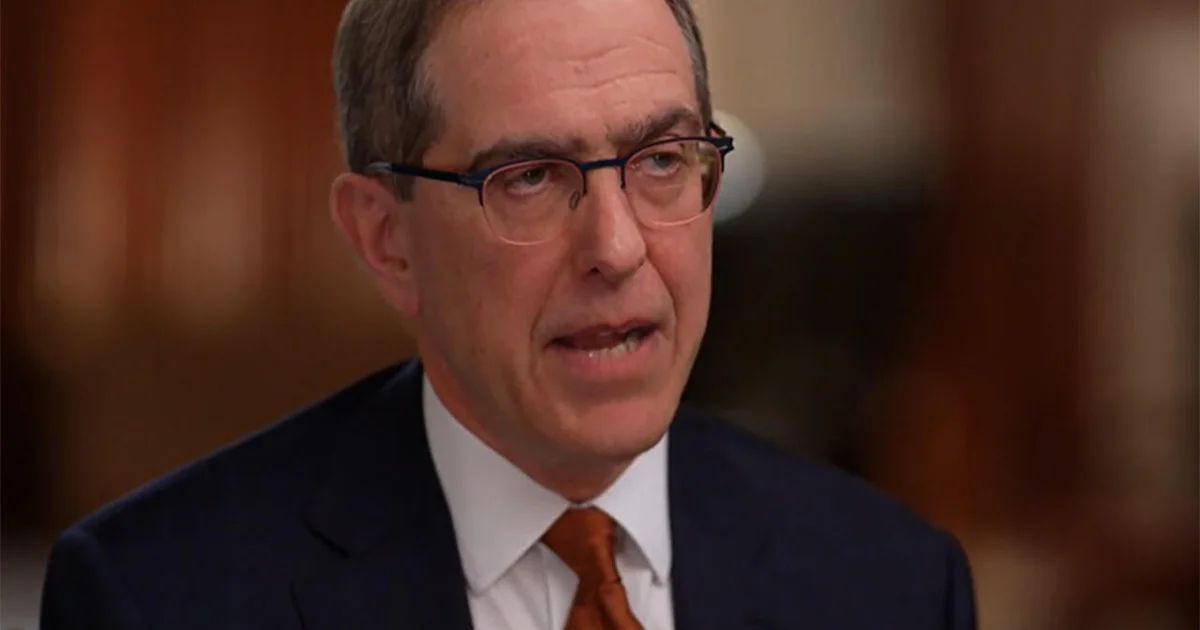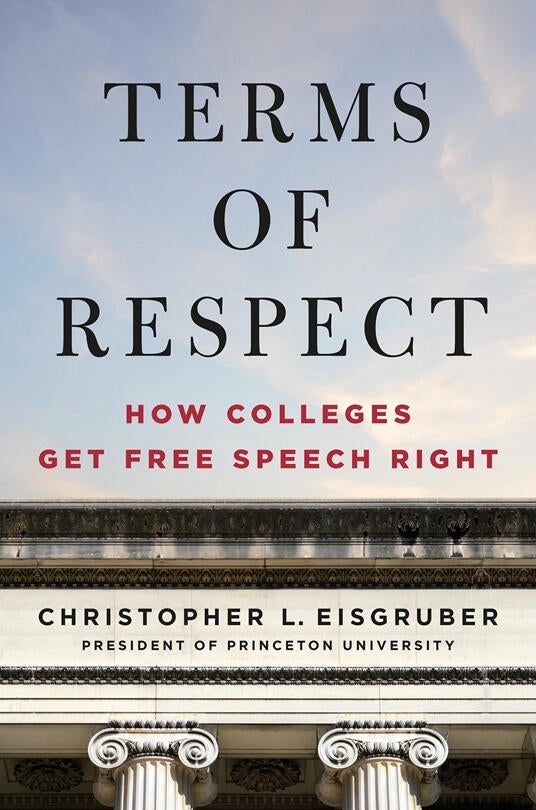“It’s a hard time to be a university president,” said Princeton University President Christopher Eisgruber. “But even in the best of times, you’re dealing with such a wide set of constituencies, right? Trustees, alumni, students … sometimes the president of the United States.”
Eisgruber found his university under pressure from President Trump this past spring. Along with other schools, Princeton’s federal support was frozen – more than $200 million in grants. “These were grants in fields like quantum science or artificial intelligence that are high on our list of priorities, and that are also high on the list of priorities for the Trump administration,” he said. “So, we were surprised to see those grants suspended.”
CBS News
But for many in Mr. Trump’s circle, it was anything but a surprise. It was the latest chapter in the president’s shakeup of higher education.
Although Mr. Trump graduated from the University of Pennsylvania, the Ivy League has been one of his biggest targets. In the wake of campus protests, the Trump administration has put an emphasis on addressing charges of antisemitism. In recent weeks the administration has ramped up its efforts, offering universities a so-called “compact” in exchange for preferential treatment on funding. Universities would have to align with the White House’s priorities, from how it defines gender to protecting conservative speech.
On Oct. 20, May Mailman, who has been a key player inside the Trump White House, told the Fox Business channel, “The federal government has to make difficult decisions, and universities should only get funding if there’s going to be a benefit for Americans on the other side of it.”
So far, only one university (New College of Florida) has agreed to sign the compact. Many have rejected it (including the University of Pennsylvania, the Massachusetts Institute of Technology, and the University of Southern California), and others are reviewing the terms. Princeton is not signing the compact, and Eisgruber, an expert on constitutional law, calls the proposal “dangerous.”
Basic Books
In his new book, “Terms of Respect: How Colleges Get Free Speech Right,” Eisgruber defends higher education on free speech, and gives universities a road map on how to navigate free speech issues they encounter.
When asked about his book’s conclusion that there is a civic crisis in the United States, Eisgruber said universities often reflect what is happening in the culture. “It’s on campuses because it’s in society,” Eisgruber replied. “So, we’ve got an American crisis in the United States, where we are having trouble talking to one another across political differences. Campuses are part of that society, and they’re a place where civil discussions and discussions across difference are especially important.”
Free speech and political violence
Princeton has had its own stand-offs over speech. In 2015, students held a sit-in in Eisgruber’s office, calling for the renaming of the university’s School of International Relations, citing racist comments by former President Woodrow Wilson; and personnel disputes have led to sharp criticism from some conservatives.
Eisgruber acknowledges there is work to be done, but says universities need to be careful about moving too close to any particular viewpoint in some debates. “We shouldn’t make the mistake of thinking that what we’re doing is looking to mirror political views on a college campus,” he said. “It’s not our job to just be making the same arguments that are being made out in society. So, there might be a lot of division about, say, vaccines within our society, and a scholarly consensus that is inconsistent with those divisions that says vaccines have been safe and vaccines have been effective. There’s not some obligation on the part of universities to reflect the political argument.”
Making things even more complicated is the specter of political violence. When conservative activist Charlie Kirk was gunned down on a college campus in Utah, Eisgruber said, “I was so deeply saddened. First of all, I was saddened for Charlie Kirk’s family. I was saddened for our country and our Constitution, because whatever else is true and whatever political views one may have, we have got to be a country where people can have discussions without the threat of assassination and political violence. So, I worried. I worried about our future because as these events occur, I fear they deepen our crisis “
Asked about the reaction by students to such violence, Eisgruber said, “First of all, I think college campuses are great places to have conversations and great places to be and, in general, safe places to be, right? We’ve seen a lot of political violence in our country, you know, at the homes of Minnesota lawmakers, at the Israeli embassy in Washington, at the home of the Pennsylvania governor, at our nation’s Capitol. So, I think college campuses in general have done a pretty good job of allowing controversial speech.”
Universities are not the only institutions in American life dealing with the White House: law firms, arts organizations, even late-night hosts have found themselves the targets of criticism from this administration. But longtime leaders in higher ed are keeping close watch on how universities are responding.
Lawrence Summers, the former president of Harvard, said, “They’re facing tougher problems than any university president has faced since the Vietnam War period 50 years ago.”
Lee Bollinger, who was president of both Columbia and the University of Michigan, said, “This is a broad-based attack on norms and values that are really fundamental to the United States as we have known it.”
Back at Princeton, the school is engaging with the Trump administration to protect its research, and it has been able to get roughly half of the suspended grants restored, after underscoring how those efforts – in science, energy, and other fields – matter for the country. But Eisgruber and other university leaders know the storm in higher educations is far from over.
“The stakes are really high,” he said. “There are a number of things – our Constitution, our commitment to freedom, our commitment to the individual – that have made a difference to America and have strengthened the world. But our investment, our smart investment by the federal government in research universities and education has been critical to the leadership that we have developed in the world, and it is critical to America’s future.”
For more info:
Story produced by Wonbo Woo. Editor: Jason Schmidt.
See also:



